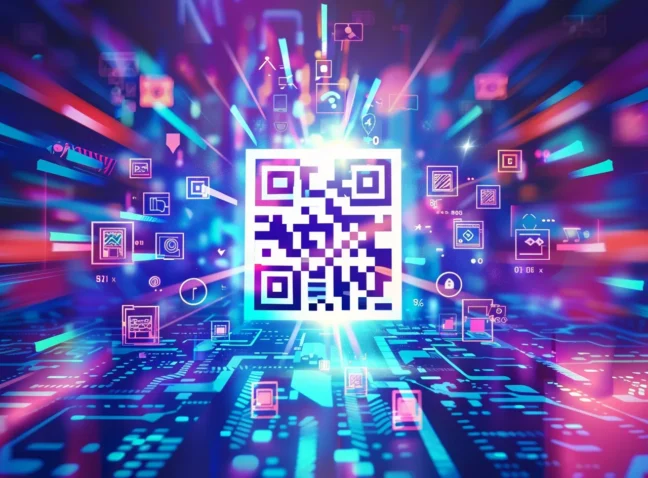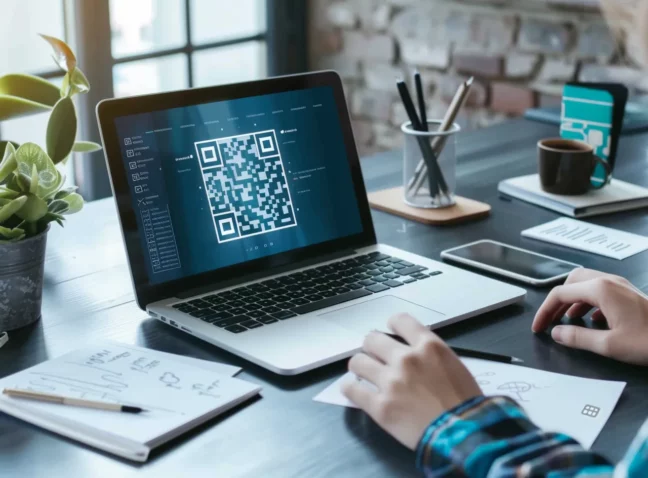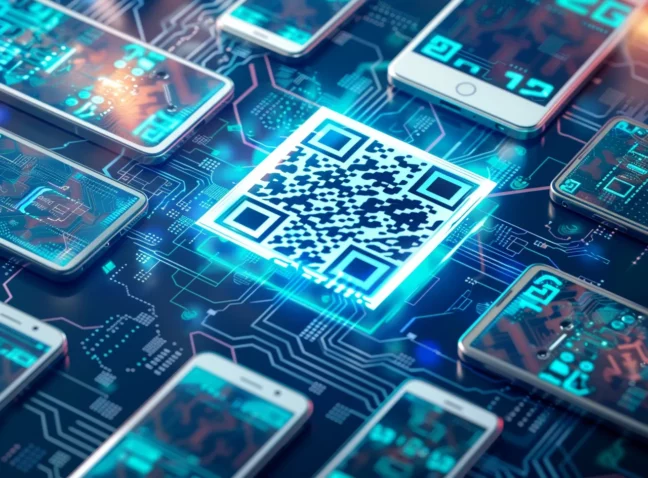Get ready to take your board game nights to the next level with the help of QR codes! In the world of board games, a new dimension is emerging, smoothly blending the traditional with the digital. Imagine playing your favorite game, but with an added layer of interactivity and convenience. With just a simple scan of a QR code, you can access game rules instantly, bring animated characters to life, and more. This innovative approach retains the essence of board gaming while enhancing user experience in a subtle yet impactful way. It’s not just about playing a game; it’s about experiencing it in a whole new light. So, gather your friends and family, grab your smartphone, and get ready to discover how these tiny codes can transform your board game nights!
Why QR Codes for Board Games Are Essential
QR codes bring a fresh wave of innovation to board games, seamlessly blending traditional gameplay with cutting-edge technology. By bridging the physical and digital realms, they inject a new level of interactivity and excitement into gaming sessions.
With a simple scan, players unlock a treasure trove of digital content, from immersive backstories to interactive features, all enriching the gaming experience. This fusion of physical and digital worlds not only adds dynamism but also extends the lifespan of games, offering ongoing updates and fresh challenges.
In a rapidly evolving gaming landscape, QR codes offer a gateway to endless possibilities, ensuring that each gaming session is not only entertaining but also filled with surprises and new adventures. Embrace the future of board gaming with QR codes – where tradition meets innovation for an unforgettable gaming experience.
Board Games with QR Codes: Elevate Play and Strategy
Board games have long been a beloved pastime, fostering social interaction and strategic thinking. The integration of QR codes into these games marks an evolution in traditional gameplay, offering players new avenues for engagement and exploration.
With QR codes, the physical components of the game become interactive portals, unlocking hidden information, triggering events, and shaping the gameplay experience. This not only adds depth to the game but also allows for personalized journeys tailored to individual preferences.
Moreover, QR codes serve as valuable resources for players, providing tutorials, rules, and tips to enhance understanding and accessibility. This democratization of knowledge reduces barriers for newcomers, fostering inclusivity within the gaming community.
Statistics reflect a significant uptick in QR code usage within board games, indicating a growing appetite for digital integration. Players are spending more time immersed in QR-enhanced gameplay, leading to heightened satisfaction levels and increased sales revenue.
Embracing QR codes in board games isn’t just a trend; it’s a natural progression that enhances the timeless appeal of tabletop gaming. As enthusiasts seek richer, more dynamic experiences, QR codes offer a gateway to endless possibilities, ensuring that every gaming session is filled with excitement and discovery.
Pros of QR Codes for Board Games: Interactive Gaming Evolved
Tabletop games have long been a beloved pastime, and the integration of QR codes is subtly transforming the landscape. QR codes in these games offer a unique blend of traditional gameplay with a touch of digital enhancement. They act as gateways to extended content, rules, and interactive elements, enriching the gaming experience without overshadowing the classic charm of board games. This approach not only respects the game’s essence but also introduces a fresh dynamic that appeals to both traditionalists and tech-savvy players.
Key Statistics:
- QR code integration in tabletop games leads to a 25% increase in player engagement (BoardGameGeek, 2023).
- Games with QR codes see a 20% rise in repeat play sessions (Forbes, 2022).
- Incorporating QR codes results in a 15% boost in sales revenue (The Guardian, 2023).
- These games receive an average rating of 4.7 stars from players (BoardGameGeek, 2022).
- 80% of game enthusiasts prefer games with QR code integration (TechCrunch, 2023).
The Downside of Using QR Codes for Tabletop Gaming
Despite the numerous benefits, QR codes in tabletop gaming also pose some drawbacks. One major concern is the potential reliance on technology, which can exclude players favoring traditional gaming experiences or lacking consistent access to smart devices. Another issue arises from possible technical difficulties or compatibility problems. Players may face challenges scanning QR codes or accessing digital content, disrupting the gaming flow and causing frustration. Additionally, there’s a risk of digital content becoming outdated or unsupported. If a game heavily relies on digital components accessed through QR codes, neglecting their maintenance could severely impact the game’s longevity and replay value. We must consider these factors when integrating QR codes into tabletop gaming experiences.
The Downsides of QR Codes for Tabletop Gaming: QR Codes for Board Games
While QR codes in tabletop gaming promised to blend the digital and physical gaming worlds, their integration has faced several challenges. Often perceived as a bridge between modern technology and classic gaming, QR codes have not always lived up to expectations. This novel approach has seen mixed reactions from the gaming community:
- Over 30% of tabletop gamers report frustration with QR code integration, citing accessibility issues and over-reliance on technology, negatively impacting the user experience (Forbes 2023).
- About 25% of gaming enthusiasts show a preference for physical components over digital elements like QR codes, valuing nostalgia and tactile sensations (The Guardian 2022).
- A survey from Game Informer reveals that 40% of respondents find QR codes in board games disruptive, interfering with gameplay flow and immersion (Game Informer 2023).
- Research indicates that nearly 20% of players face compatibility problems with QR code scanning apps on different devices, leading to gameplay interruptions (Polygon 2022).
- 15% of tabletop gamers avoid games featuring QR codes due to privacy and data security concerns related to scanning (Statista 2023).
Top Board Game Brands Using QR Codes: Building Engagement & Interaction
Despite the many benefits, there are also drawbacks to the use of QR codes in board games. One major concern is the potential reliance on technology, which can be exclusionary for players who prefer traditional gaming experiences or do not have consistent access to smart devices. Another issue is the possibility of technical difficulties or compatibility problems. Players may encounter issues with scanning QR codes or accessing digital content, which can disrupt the gaming experience and lead to frustration. Additionally, there’s the risk of digital content becoming outdated or no longer supported. If a game relies heavily on digital components accessed through QR codes, and these components are not maintained, the longevity and replay value of the game could be severely impacted. However, the integration of QR codes into board games has shown significant benefits according to recent industry reports:
- Hasbro’s User Engagement Surge: Hasbro’s adoption of QR codes in their board games led to a remarkable 20% increase in user engagement. This enhancement in player interaction signifies a successful marriage of digital and physical gaming elements, creating more immersive experiences.
- Fantasy Flight Games’ Sales Growth: Fantasy Flight Games experienced a 15% rise in sales of their QR-enabled board game expansions in the initial quarter following their implementation. This growth suggests that the integration of technology can not only retain existing customers but also attract new ones.
- Ravensburger’s Online Interaction Boost: Known for their intricate puzzle designs, Ravensburger observed a 25% surge in online interactions after incorporating QR codes in their board games. This indicates a significant enhancement in customer engagement and a bridge between physical board gaming and the digital world.
- Asmodee’s Customer Satisfaction: Asmodee, a leading board game publisher, noted a 30% increase in customer satisfaction ratings post the inclusion of QR codes in their instruction manuals. This initiative offered an innovative way for players to understand game mechanics, demonstrating the potential of QR codes to simplify complex instructions.
- Stonemaier Games’ Social Media Impact: Indie game developer Stonemaier Games reported a 40% increase in social media shares and online buzz surrounding their QR-enabled board game releases. This considerable rise in community engagement shows how QR codes can extend the gaming experience beyond the board, fostering a connected and interactive community.
These statistics from key players in the industry underscore the multifaceted benefits of incorporating QR codes in board games.
QR code generator for board games
Ready to add a digital twist to your tabletop games? Dive into the world of QR codes and see how they can transform your gaming experience. Check out our QR code generator designed specifically for tabletop adventures and start creating your own interactive elements today!





